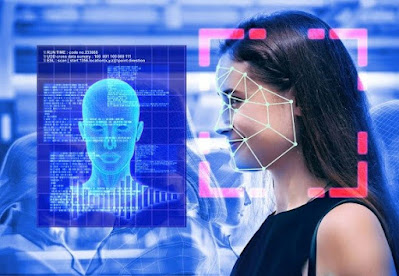Enhancing Surveillance: Cutting-Edge Face Recognition AI Cameras for Advanced Security
 |
| Face Recognition AI Camera |
In
an era characterized by heightened security threats and evolving surveillance
needs, the integration of cutting-edge technologies has become imperative to
safeguarding public and private spaces effectively. Among these technologies, Face
Recognition AI Cameras stand out as powerful tools for enhancing surveillance
capabilities and bolstering security measures. Leveraging advanced artificial
intelligence algorithms, these cameras offer unparalleled accuracy, efficiency,
and functionality in identifying individuals and detecting potential threats.
One of the primary advantages of deploying Face Recognition AI Cameras lies in their ability to accurately identify and track individuals in real-time. Unlike conventional surveillance systems that rely on manual monitoring and analysis, these cameras employ sophisticated facial recognition algorithms to automatically detect and match faces against databases of known individuals. This capability enables security personnel to quickly identify and respond to unauthorized access attempts, suspicious behavior, and potential security breaches, thereby enhancing overall situational awareness and threat mitigation efforts.
Moreover, the advanced features of Face Recognition AI Camera extend beyond simple identification. With capabilities such as facial analytics, emotion detection, and crowd monitoring, these cameras provide valuable insights into human behavior and interaction patterns. For instance, in retail environments, facial recognition technology can be used to analyze customer demographics, preferences, and shopping behaviors, enabling retailers to tailor their marketing strategies and optimize customer experiences.
Furthermore, the integration of AI algorithms into surveillance cameras enhances their adaptability and effectiveness in various environmental conditions. Whether in low-light settings, crowded spaces, or adverse weather conditions, Face Recognition AI Cameras can accurately identify individuals with minimal error rates, ensuring reliable performance in diverse operating environments. This level of robustness is particularly critical in high-security areas such as airports, transportation hubs, and government facilities, where precision and reliability are paramount.
In addition to their efficacy in security applications, Face Recognition AI Cameras also offer practical benefits in terms of operational efficiency and cost-effectiveness. By automating the process of facial identification and analysis, these cameras reduce the workload on security personnel, allowing them to focus on more strategic tasks and response activities. Moreover, the data insights generated by these cameras can inform resource allocation, risk assessment, and decision-making processes, enabling organizations to optimize their security strategies and investments effectively.
However, despite their numerous advantages, the deployment of Face Recognition AI Cameras raises important ethical and privacy considerations. The collection and processing of facial data raise concerns about individual privacy, consent, and data protection. It is essential for organizations to implement robust privacy safeguards, transparent policies, and compliance measures to ensure the responsible and ethical use of facial recognition technology. Additionally, ongoing dialogue and collaboration with stakeholders, including privacy advocates, regulatory bodies, and the public, are essential to address concerns and build trust in the deployment of these technologies.
Face Recognition AI Cameras represent a significant advancement in surveillance technology, offering unparalleled accuracy, efficiency, and functionality in enhancing security measures. By leveraging advanced artificial intelligence algorithms, these cameras empower organizations to identify and respond to security threats proactively, optimize operational efficiency, and enhance situational awareness. However, it is crucial to balance the benefits of these technologies with ethical considerations and privacy concerns to ensure their responsible and ethical use in society. Through transparent policies, robust privacy safeguards, and stakeholder engagement, organizations can harness the full potential of Face Recognition AI Cameras while upholding individual rights and societal values.



Comments
Post a Comment